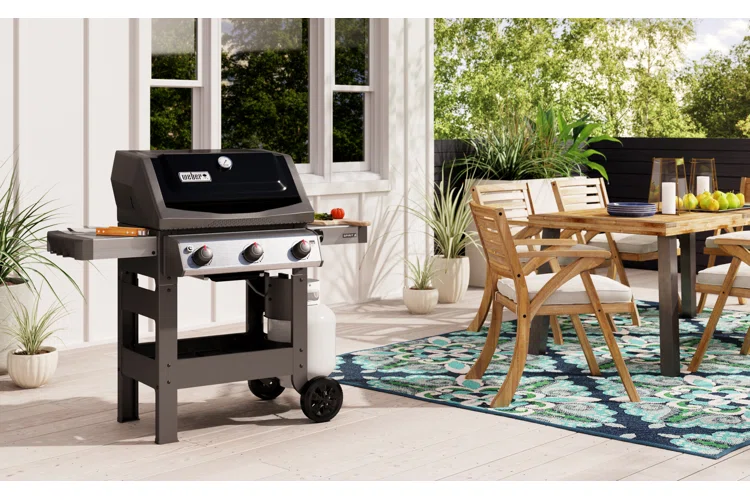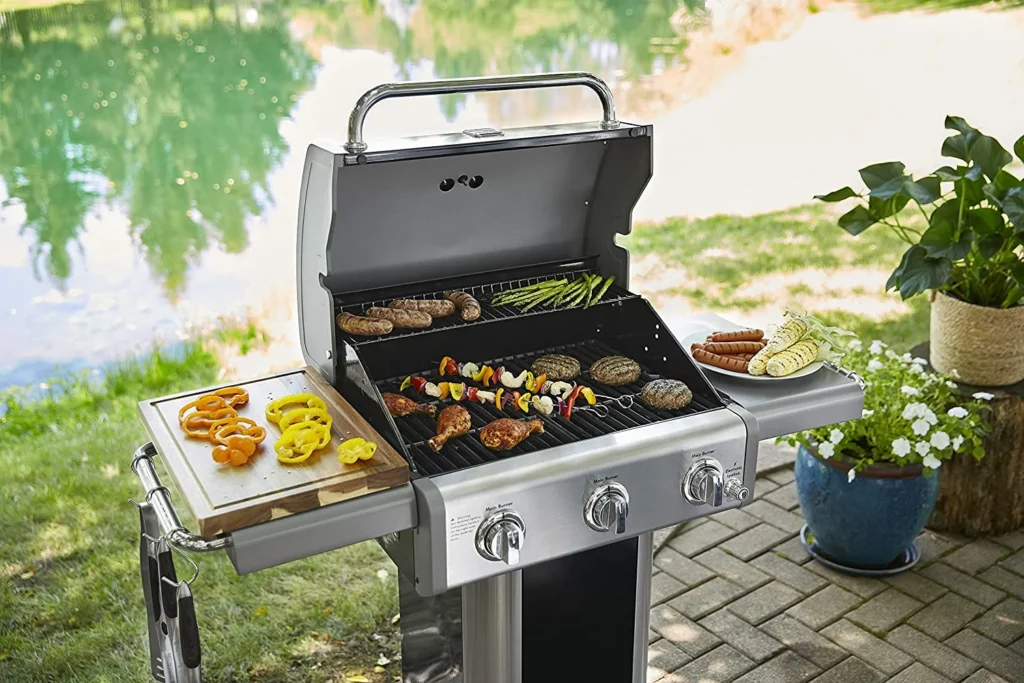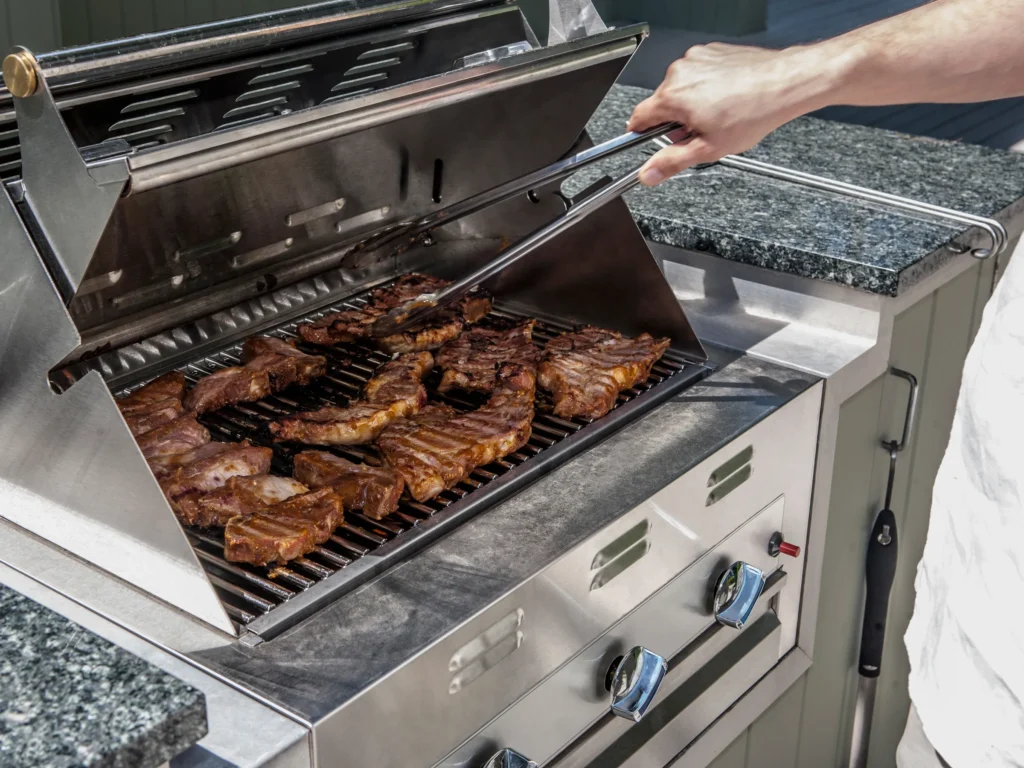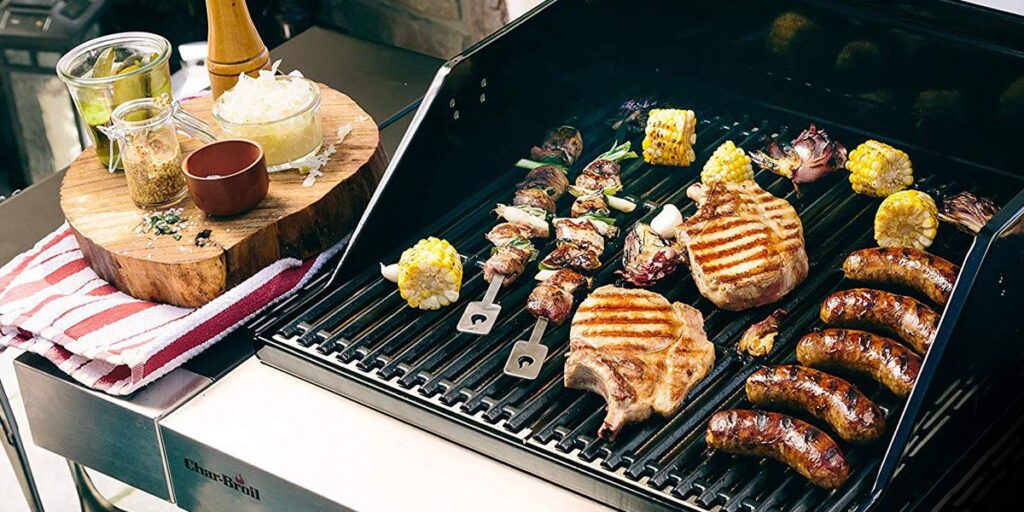If you’re in the market for a new grill, one of the most important factors to consider is the BTU rating. BTU, or British Thermal Unit, is a measure of the heat output of a grill. The higher the BTU rating, the more heat the grill can produce, which can translate to faster cooking times and a better sear on your food. However, it’s not always as simple as just choosing the grill with the highest BTU rating. Your local BBQ shop will show you why, but in this blog post, we’ll explore what BTU rating you should look for in a grill.
Consider Grill Size

Source: wayfair.com
When it comes to BTU rating, the size of the grill matters. A larger grill will require more BTUs to heat up and maintain a consistent temperature than a smaller grill. As a general rule of thumb, you’ll want a grill with a BTU rating of at least 80-100 BTUs per square inch of cooking space. For example, if you have a grill with 500 square inches of cooking space, you’ll want a BTU rating of at least 40,000-50,000.
Look Beyond BTU Rating
While BTU rating is an important factor to consider, it’s not the only factor. A high BTU rating doesn’t necessarily mean that a grill will perform better than a grill with a lower BTU rating. Other factors, such as grill construction, burner design, and heat distribution, can also impact the performance of a grill.
Consider Your Cooking Needs
When choosing a grill, it’s important to consider your cooking needs. If you frequently cook for large groups or like to grill thick steaks and chops, you may want a grill with a higher BTU rating to ensure that it can reach high temperatures quickly. On the other hand, if you primarily grill burgers and hot dogs, a lower BTU rating may be sufficient.
Think About Fuel Type

Source: rollingstone.com
The fuel type of your grill can also impact the BTU rating. Gas grills tend to have higher BTU ratings than charcoal grills, as they can heat up quickly and maintain a consistent temperature. However, charcoal grills can still produce high temperatures and create a great sear on your food, even with a lower BTU rating.
Grill Materials
The materials used in the construction of your grill can also impact its performance. Grills made with thicker gauge steel or cast iron tend to retain heat better and distribute it more evenly, which can help compensate for a lower BTU rating. Additionally, grills with ceramic components, such as kamado-style grills, can hold heat for longer periods of time and require less fuel overall.
Price Range
Your budget is another important factor to consider when choosing a grill. While higher BTU ratings can often be found on more expensive grills, there are many affordable options available that still offer sufficient heat output. Keep in mind that a higher price tag doesn’t always guarantee better performance or quality, so be sure to do your research and read reviews before making a purchase.
Additional Features

Source: wired.com
Finally, it’s important to consider any additional features that a grill may offer beyond its BTU rating. Features such as multiple burners, side tables, and built-in thermometers can all impact the performance and convenience of your grill.
Altitude and Climate
It’s important to consider your local climate and altitude when choosing a grill. If you live in a high-altitude area, you may need a grill with a higher BTU rating to compensate for the thinner air. Similarly, if you live in a colder climate, you may need a grill with a higher BTU rating to maintain heat in colder temperatures.
Cooking Surface
When calculating the BTU rating you need, it’s important to consider the type of food you’ll be cooking and the surface area you’ll be cooking on. For example, if you plan to cook a lot of fatty meats like burgers or steaks, you’ll need a higher BTU rating to help prevent flare-ups. On the other hand, if you plan to cook a lot of vegetables or seafood, you may not need as high of a BTU rating.
Personal Preference

Source: popularmechanics.com
At the end of the day, personal preference plays a big role in what BTU rating you should look for in a grill. Some people prefer a grill with a high BTU rating for quick searing and cooking times, while others prefer a lower BTU rating for a slower, more controlled cook. Ultimately, it’s important to choose a grill that fits your cooking style and preferences.
In summary, when choosing a grill, it’s important to consider a variety of factors beyond just the BTU rating. Factors such as grill size, construction, fuel type, price range, altitude, cooking surface, and personal preference all play a role in determining what BTU rating you should look for in a grill. By taking these factors into account, you’ll be able to choose a grill that meets your needs and helps you cook delicious meals for years to come. Head to your local BBQ shop to learn more.





